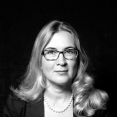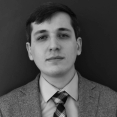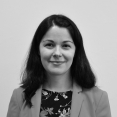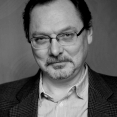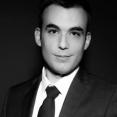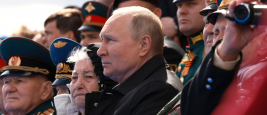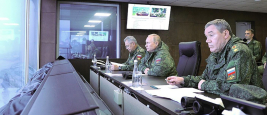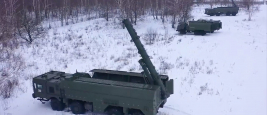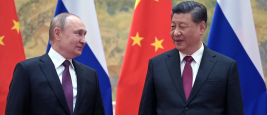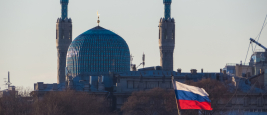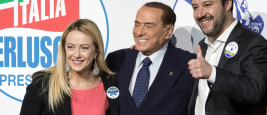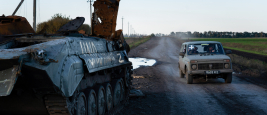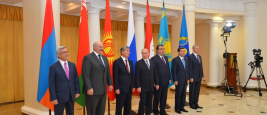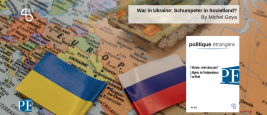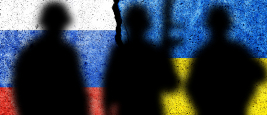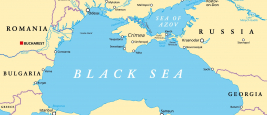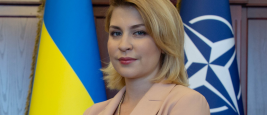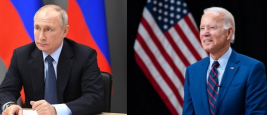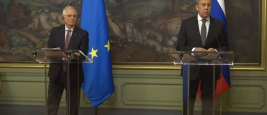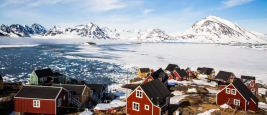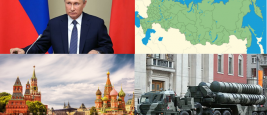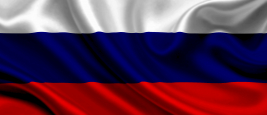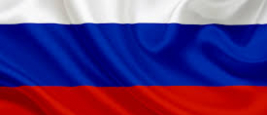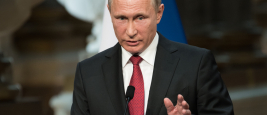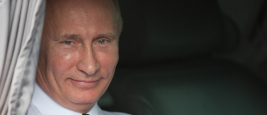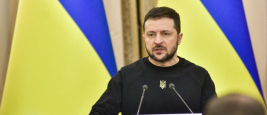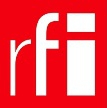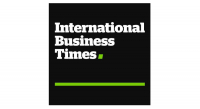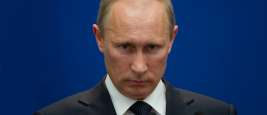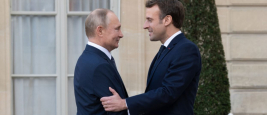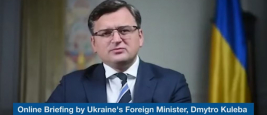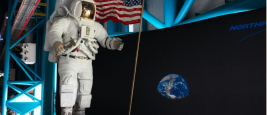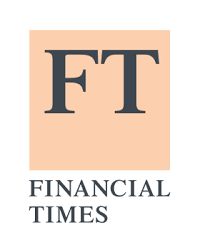Since the full-scale invasion of Ukraine on February 24, 2022, the Russian government has been proactive in the ideological realm to ensure the sustainability of the war for Russian society.

Russian Foreign Policy and Security
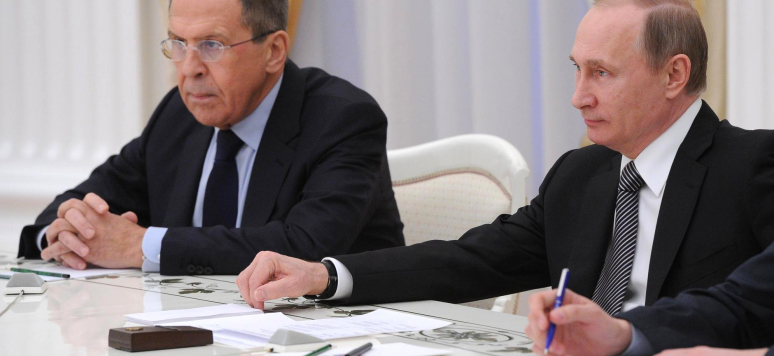
The Foreign Policy and Security research axis whithin Ifri's Russia / Eurasia Center analyses the relations of Russia and the Eurasian States with the rest of the world, with a special focus on security issues.
Director of Ifri's Russia / Eurasia Center
...Research Fellow, Russia / Eurasia Center
...Project Officer, Russia / Eurasia Center
Associate Research Fellow, Russia / Eurasia Center
...Associate Research Fellow, Russia / Eurasia Center
...Associate Fellow, Russia / Eurasia and Geopolitics of Technologies Centers
...The Russian army is very critical of its war in Ukraine. Not just of the first phase of the failed special military operation (SVO), which was inspired by the theorization of bypassing, but also of the strategic deterrence phase that preceded it.
The traditional and high-intensity war that has occurred in Ukraine since Russia decided to invade raises a key issue: did post-soviet Russian strategic thought really prepare Russia for waging this war?
When Xi Jinping and Vladimir Putin announced a “no limits friendship” at their February 2022 summit, the message was that Beijing and Moscow had reached a new peak in relations.
While Russia’s military invasion of Ukraine has resulted in a decoupling with the West on a scale not seen since the worst years of the Cold War, Russia has not been isolated from the non-Western world and has even reinvested its diplomatic energy toward the Global South.
Italy’s new far-right government has been widely perceived as the potential weak spot of the anti-Kremlin European front following Russia’s invasion of Ukraine: traditionally pro-Putin politicians such as Matteo Salvini and Silvio Berlusconi are back in power. Yet, after Mario Draghi’s hawkish...
The blame for committing the blunder of starting the war with Ukraine is deservedly placed on President Vladimir Putin, but a single-explanation interpretation of the unfolding disaster is unsatisfactory.
The two years preceding the Russian invasion of Ukraine suggested that Russia had adopted a measured policy toward the post-Soviet space. Faced with social protests in Belarus, a coup in Kyrgyzstan, the victory of pro-European president Maia Sandu in Moldova, the second war in Nagorno-Karabakh...
On 24 February 2022, Russia invaded Ukraine. Moscow’s initial plan was to use a “shock and awe” approach to conquer Kyiv quickly.
On February 24, 2022, eight years after deploying an integrated military and non-military indirect strategy against Kiev, Vladimir Putin decided to initiate an open war against Ukraine.
Strategic positioning and energy challenges for Türkiye in the Black Sea Conference
The Black Sea has become a battleground in the Russian-Ukrainian war. While Moscow asserts its ambitions for power at sea and on land, Ankara controls maritime access through the strait. Turkey plays the role of mediator to ensure the security of grain and hydrocarbon...
Ukraine: On the Way to the European Union through the War. Online Briefing by Deputy Prime Minister Olha Stefanishyna Videoconference
Nine months after the start of the Russian aggression, Olha Stefanishyna, Deputy Prime Minister for European and Euro-Atlantic Integration of Ukraine, discusses the situation in Ukraine and the country's prospects.
Russia-US: What Perspectives after Joe Biden’s Election? Videoconference
After four years of a Trump presidency marked by “Russiagate”, the election of Joe Biden at the end of 2020 marks a new turning point in Russian-American relations. While the change in the American administration allowed the New START treaty on strategic arms reduction to be saved in...
Rethinking the EU-Russia relationship after Borrell’s Moscow visit or: How to deal with Russia after Borrell’s visit to Moscow Videoconference
The EU-Russia relationship, which has been deteriorating since 2014, has recently experienced various shocks, such as the poisoning, then imprisonment of opposition leader Alexey Navalny and the failure of EU High Representative Josep Borrell’s diplomatic visit to Moscow. Judging by Russian...
The Arctic: Seizing Opportunities and Safeguarding Stability Videoconference
The Arctic region has enjoyed lasting political stability for several decades. However, the region is very vulnerable to the acceleration of climate change, and in addition, it is subject to growing interest from global powers eager to explore its geo-economic and geo-strategic potential....
Russia’s thwarted ambitions By personal and non-transferable invitation
This event is dedicated to the Russia/NIS Centre Corporate supports. By personal invitation only.
...
Russia’s power: instruments and dilemmas By personal and non-transferable invitation
This event is dedicated to the Russia/NIS Centre Corporate supports. By personal invitation only.
...
Russia: challenges of the next presidential term 2018-2024 By personal and non-transferable invitation
This event is dedicated to the Russia/NIS Centre Corporate supports. By personal invitation only.
...
Towards Vladimir Putin’s Fourth Term as President: Challenges and Prospects By personal and non-transferable invitation
This event is dedicated to the Russia/NIS Centre Corporate supports. By personal invitation only.
...
Russia by 2025: which scenarios? By personal and non-transferable invitation
This event is dedicated to the Russia/NIS Centre Corporate supports. By personal invitation only.
...Ukraine faces growing diplomatic headwinds after its summer counter-offensive against Russia's forces faltered, with aid from vital backers in the United States and EU being increasingly called into question.
The conflict between Hamas and Israel is both an opportunity and a risk for Russian President Vladimir Putin, who has been mired in pressing his invasion of Ukraine for the past 19 months.
The conflict between Hamas and Israel is both an opportunity and a risk for Russian President Vladimir Putin, who has been mired in pressing his invasion of Ukraine for the past 19 months.
The conflict between Hamas and Israel is both an opportunity and a risk for Russian President Vladimir Putin, who has been mired in pressing his invasion of Ukraine for the past 19 months.
Western powers appear unable to thwart Putin’s strategy to reassert Russian influence
Rarely in recent years has the Kremlin been so popular with European visitors. French President Emmanuel Macron arrives Monday. The Hungarian prime minister visited last week. And in days to come, the German chancellor will be there, too. All are hoping to get through to President Vladimir...
Since 2014, Ukraine's territorial integrity and security have been challenged by Russia's annexation of Crimea and by the conflict in Donbas. Military maneuvers in spring and October 2021 have raised the threat of open armed conflict between Ukraine and Russia. Kyiv, on the other hand,...
GLONASS, Moscow’s answer to GPS, is set to launch an upgraded satellite network later this year, which it hopes to sell to the U.S. and Europe. Buyer beware.
The series For All Mankind (2019) is a fictional alternate history that imagines a world where the Soviet Union was the first power to send an astronaut to the moon. From that starting point, the two rival superpowers compete to establish their own lunar station.
Kremlin stance is blow to European countries which favour outreach to Moscow. Russia’s combative treatment of the EU’s top diplomat during a landmark trip there has triggered a political outcry — but little expectation that the European bloc will end divisions over how to handle the Kremlin.<...>



